
What is the problem?
Uncertainty of entrepreneurs after moving
According to the Office of the United Nations High Commissioner for Refugees, as of January 2023, 5.9 million Ukrainians are internally displaced persons. Along with their home, people leave many established social ties — one of the main components for the development of their enterprises. As a result, being in a new environment, a person experiences uncertainty, which prevents them from continuing their work. According to official data, 440 enterprises relocated to Zakarpattia Oblast alone.
What is the solution?
Personal analysis of the area
To facilitate the relocation of business and its further support, entrepreneurs can turn to local initiatives, for example, Save Business Now in Ivano-Frankivsk and Invest in Lviv, and to all-Ukrainian ones, such as E-Tender or eRobota (the government program of non-refundable grants for the creation and development of one's own business — ed.)
However, such initiatives sometimes can't find solutions for entrepreneurs. In this case, success can be achieved independently by exploring the new area.
Communicating with local businesses and residents helps reduce uncertainty, get to know the city, identify local issues, confirm or disprove hypotheses, and create new social connections.
We tell you how this method helped Kyiv entrepreneurs succeed in a new place.
How does it work?
Children's club "Ta-ra-ram": how to convey your value
Before the full-scale invasion, the Ta-ra-ram club operated in Kyiv. It organized children's parties, show programs, and quests. The club director Tetyana Butina also manages the private licensed kindergarten "Kadryky" part-time. Tetyana has been working in the leisure and entertainment industry for over ten years and in education for five years.
With the beginning of the full-scale invasion, Tetyana and her family left to visit friends in the west of Ukraine, to Rakhiv. Later, the opportunity arose to go abroad and take the business with her. However, Tetyana refused:
"How will I take all this knowledge to another country and give it to other children? Before the invasion, my work's main idea was that the child should be happy, and the rest will follow. Now happiness has taken a back seat. Children must be smart so that when they grow up, they can rebuild our country after what happened to it."
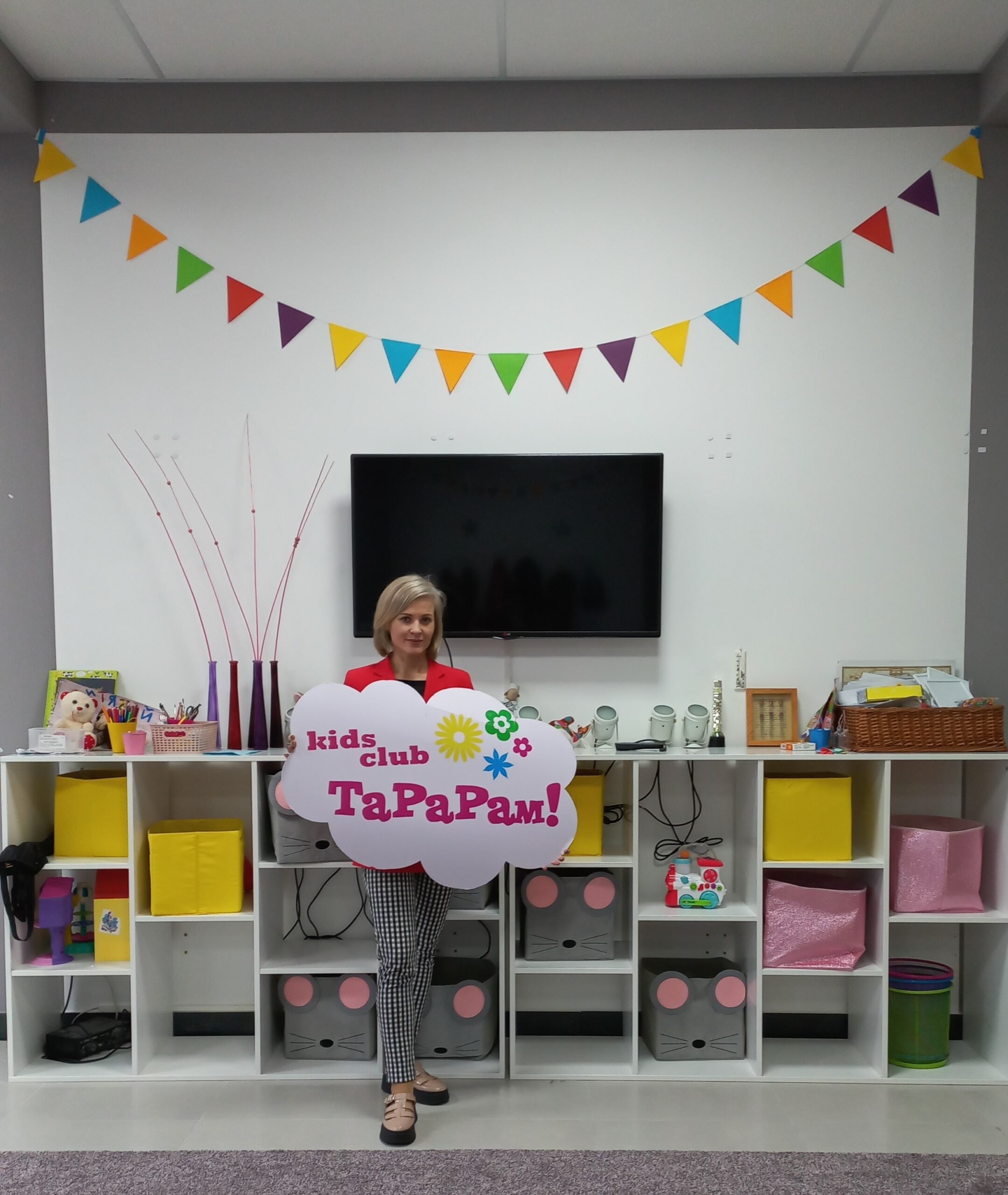
Tetyana finally decided to recreate the club in Rakhiv in the spring when her six-year-old daughter started to get bored. At the same time, the child felt stress from the change of environment and the tension from the previous multiple lockdowns.
"I understood that not only my child and I were in such a situation, but also many other families. The parents were going crazy because the children were always at home. Everyone needed relief," the director recalls.
The party that no one came to
It took Tetyana a week and 10,000 hryvnias to open a unit in Rakhiv. At first, the entrepreneur began collecting information through her friends in Rakhiv. She communicated with business and community management representatives, simply with girlfriends and mothers. She also researched local groups on social networks and walked the streets and surrounding villages.
Tetyana discovered no children's institution of the same level as "Ta-ra-ram" in Kyiv. She was convinced that if the business were successful and valuable at home, it would be the same in the new place. The only question was how to convey your value.
Together with the team, Tetyana decided to create a mini-kindergarten. A unique schedule was developed for it, which consisted of four or five different classes every day from 9:00 a.m. to 1:00 p.m. Such half-hour classes included neuro gymnastics, emotional intelligence development, preparation for school (writing, reading, speech development, mathematics, logic), geography, English, sensory and cognitive development, choreography, movement, art studio, free games, and experiments. Special attention was paid to the morning and final friendly circles, during which the children discussed their impressions of the classes and their wishes for further education.

Ta-ra-ram
Thanks to communication with the locals, Tetyana was able to rent a room that once was a children's room. There was the necessary equipment, which was ideal for a mini kindergarten. They had to purchase only handout materials for classes — paper, cardboard, plasticine, kinetic sand, etc.
When everything was ready for the opening, Tetyana posted an announcement in a local group. The director described the features of the classes, indicated the price (in Kyiv, the classes cost 9,500 hryvnias per month, and in Rakhiv — 5,500 hryvnias), and invited to a free get-to-know-you party. However, in response, Tetyana faced a flurry of hate.
More than 200 private messages and comments — people were outraged by the inappropriateness of opening such an institution during a full-scale war and the price. Tetyana personally responded to key messages and remained steadfast in her decision to open a mini-kindergarten.
Although no one came to the party, after a while, full groups gathered because the parents saw that their children were interested in the classes. Ten to twelve children started going to kindergarten steadily. Among them were both locals and those who came from the affected communities.
In a few months, two more private kindergartens were opened in Rakhiv, which set a lower price for their classes. However, no one from Ta-ra-ram joined them.
"Our uniqueness is an educational component. Few people can provide such an educational component in Transcarpathia. Our service will be useful to those who share our values. The love must be mutual."
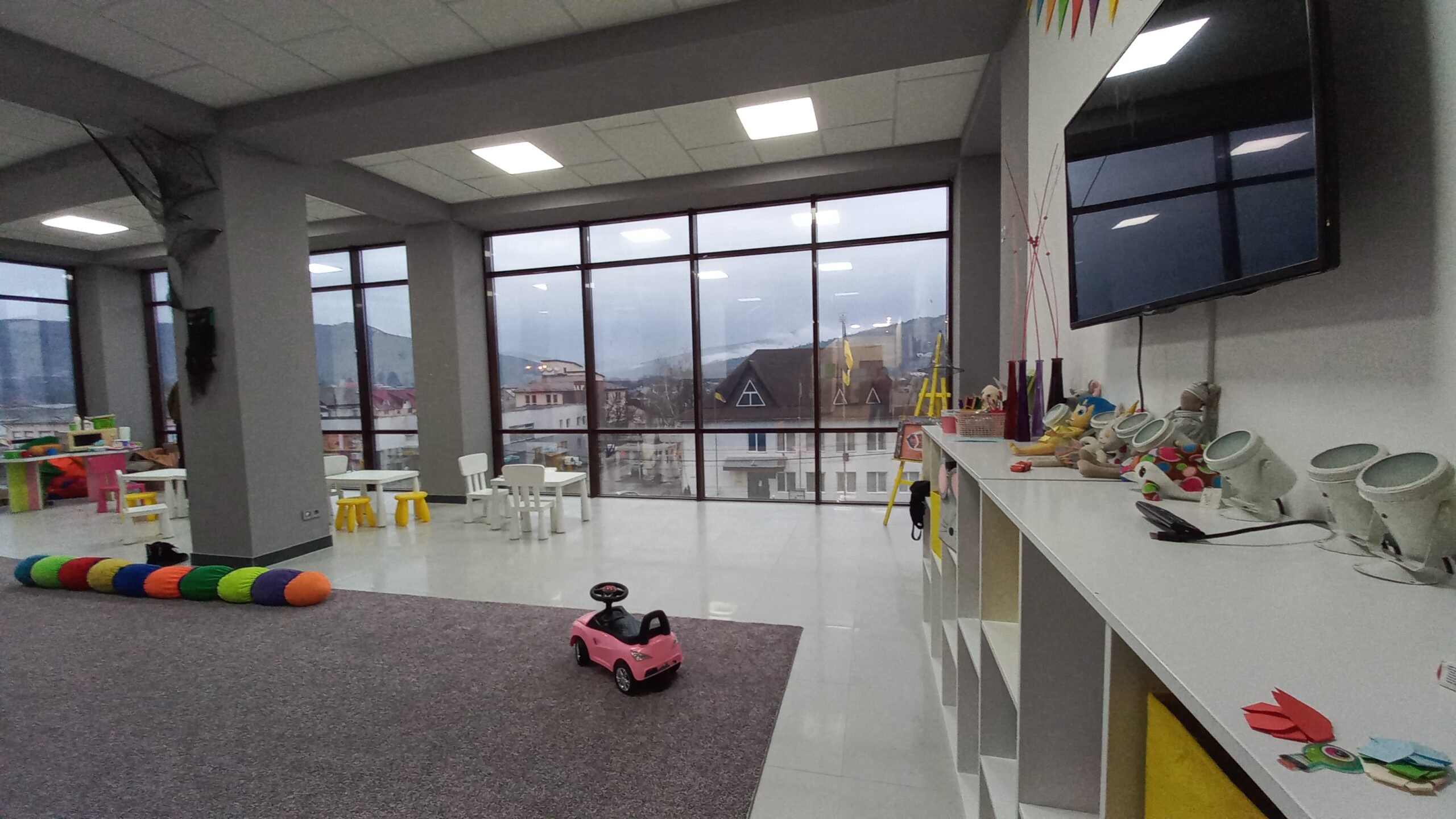
Second kindergarten and a happy ending
To create a new branch, Tetyana chose the village of Velykyi Bychkiv, which is located 30 kilometers from Rakhiv. One hundred thousand hryvnias were needed for the opening, a large part of which went to the transportation of furniture from Kyiv's Ta-ra-ram and the rent of premises in the shopping center. It was also necessary to hire an assistant.
In the beginning, work in Velykyi Bychkiv was more difficult due to the local distrust of the new. They didn't even come to the free trial classes.
Social networks, where Tetyana published photos and class descriptions, helped attract people. In Kyiv, this method did not work, but here, subscribers began to actively like and repost stories and pictures. A significant contribution to the kindergarten promotion was also made by word of mouth — Velykyi Bychkiv is almost two times smaller than Rakhiv. Kindergarten animators also entertained children at a charity fair for the Day of Defenders, attracting more people to the event and increasing their visibility.

How does it work?
"Creative Laboratory": how to create a business that has no analogs in the city
Before the full-scale invasion, Olha Chystyakova worked as a stage director at the Kyiv theater "D-T.O.P.." There were about 100 children of different ages on the theater team. Olha and her colleagues wrote the script for the play "Wings." It was the theater's most significant performance — fifty people participated. Olha has been working in the theater industry for 16 years.
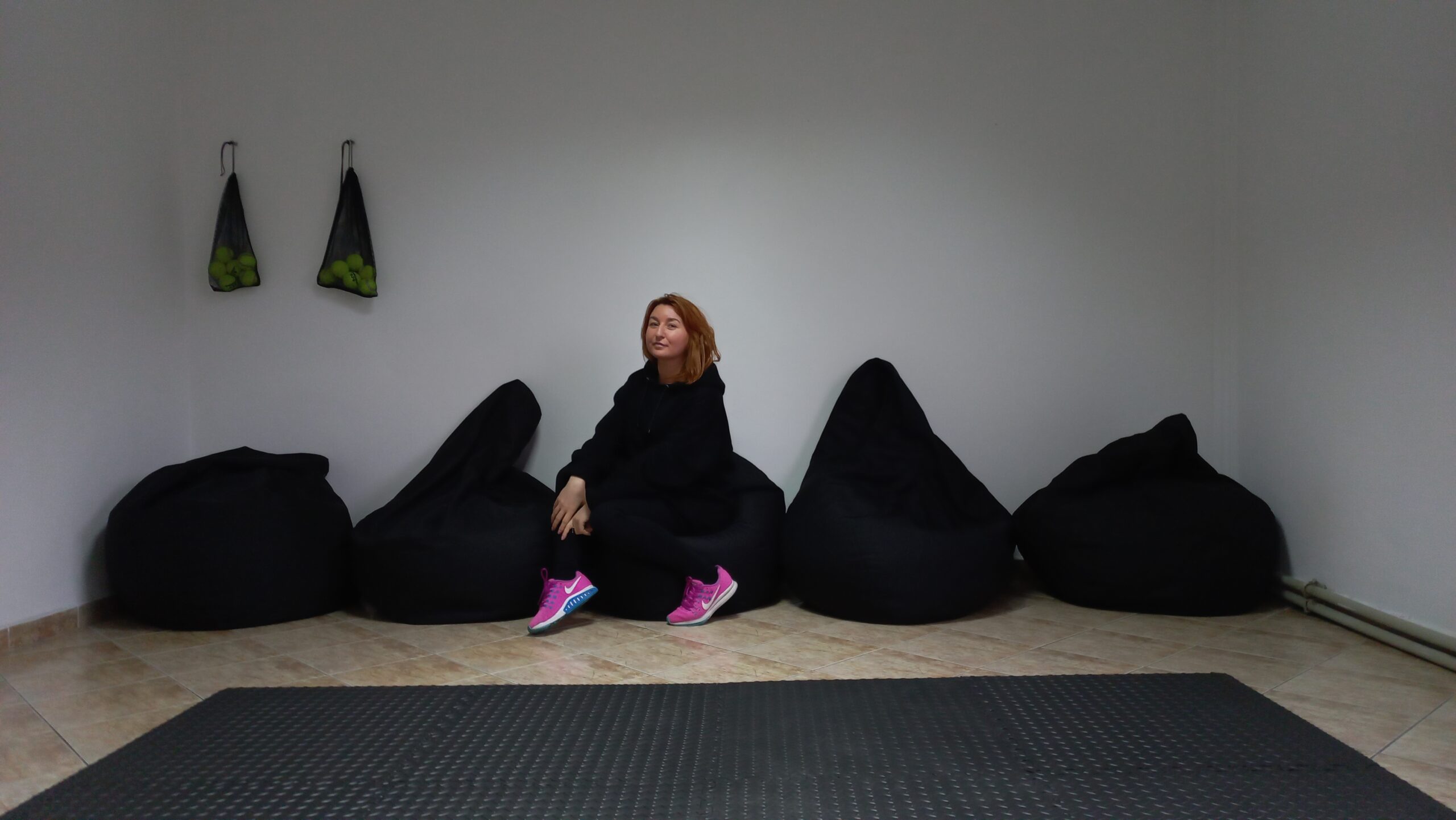
The woman met the beginning of the invasion on Kyiv's left bank. A few days later, with her sister, she got to the railway station and got on the first train she saw — it was going to Rakhiv. Thanks to volunteers, the sisters got from Rakhiv to a shelter for people from affected communities in nearby Velykyi Bychkiv. They lived in the shelter for several weeks and then were able to rent housing.
To make a living, Olha sold sweets. Over time, when she got used to it, she signed up for a fitness class because, before the full-scale invasion, she had always played sports. When she came to the hall, she saw that the location was ideal for theater classes. After training, Olha shared her thoughts with coach Oksana. As a result, they decided to rent the premises together. Later, Olha and Oksana became best friends.
"I knew that if I didn't engage in creativity, I simply wouldn't survive this difficult time. But to begin with, I needed to get a hold of something," Olha emphasizes.
Olha needed 12,000 hryvnias to open the "Laboratory," half of which came from social benefits for IDPs.
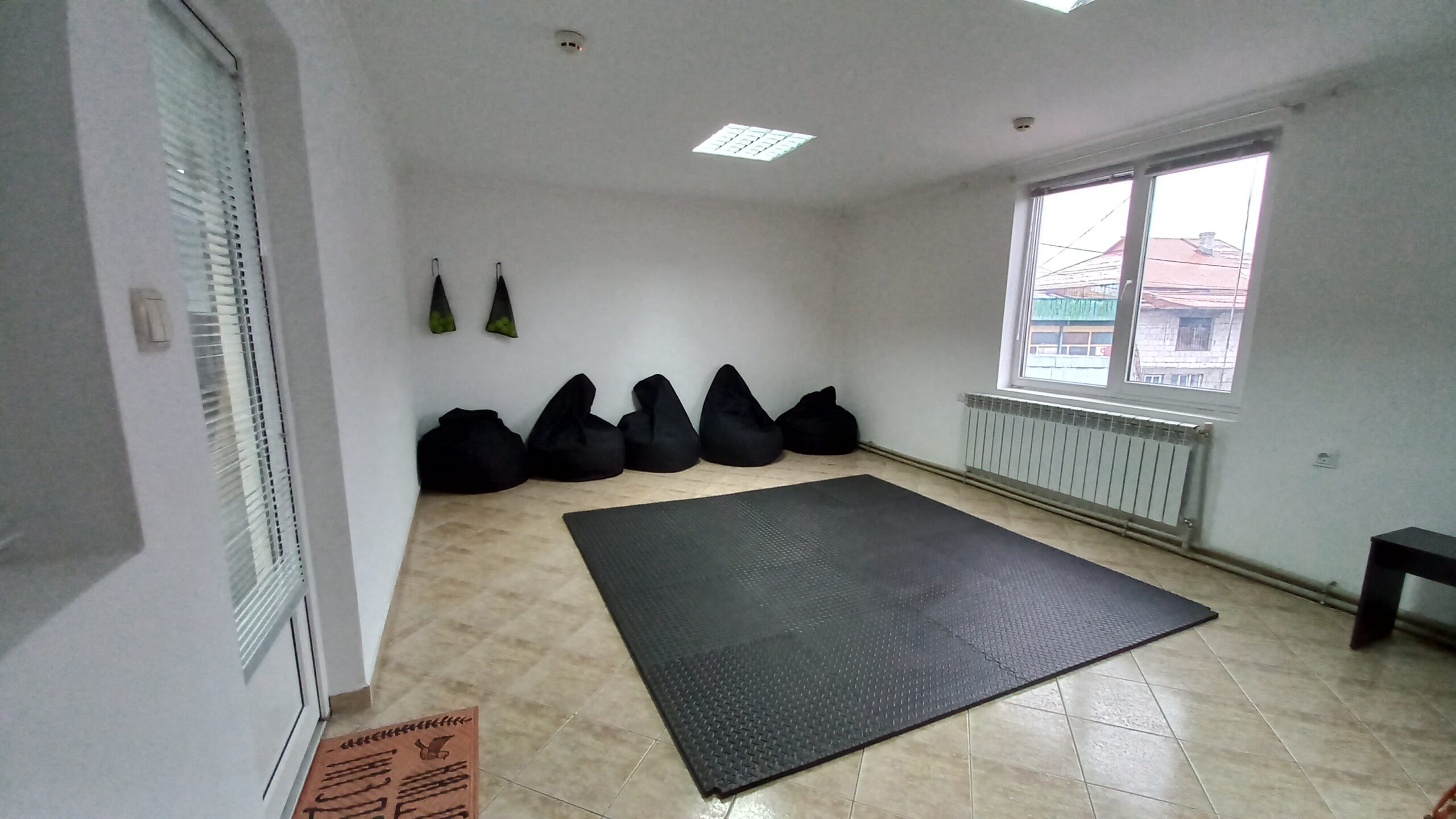
"When you personally offer a service, it's not a step back"
To understand the area, Olha first asked other "fitness ladies" and those who bought sweets from her.
"I think live communication is coming back. When you personally offer a service, it's not a step back, but a step forward," the director reflects. "I was selling candy and immediately asked: 'Do you have children?'"
As a result, it turned out that there was no theater club in Velykyi Bychkiv, and parents sent their children mainly to sports classes and to tutors to improve the school curriculum. This inspired Olha even more.
For the training program at the "Laboratory," Olha chose three areas: acting, stage language, and stage plasticity. She then posted a recruitment ad in a local group and asked fitness buddies to spread the word on their pages.
About 40 students enrolled in the "Creative Laboratory." Olha divided them into groups; some wanted to work individually. Among the children were those who came from Kharkiv and Kyiv.
Olha works through the trauma of the war very carefully not to invoke aggression among the children:
"Of course, I am also sometimes overwhelmed by emotions. However, aggression is definitely not for children, so I tell them they can express themselves through the material. I want them to have a piece of their childhood here. When they come here, we fool around and laugh."
At classes, Olha and the students agreed to speak exclusively in the Ukrainian literary language because here, the children have a Transcarpathian dialect, and she speaks with a Southern Ukrainian surzhyk (mixture of Ukrainian and russian languages — ed.) because she is from the Kherson region. The teacher believes that it is essential to work on pronunciation now.
"We polish our Ukrainian language together — this is our thing. Children like that I speak openly about my mistakes," Olha says.
The director saw that although the pace of life in Velykyi Bychkiv is slower, parents here and parents in Kyiv equally understand the value of her classes:
"It doesn't matter where you are — the most important thing is to find people who share your values. It's not just theater classes. Here, children also learn to understand themselves better and develop communication skills. Sometimes in life, this is more important than knowledge of English or mathematics."
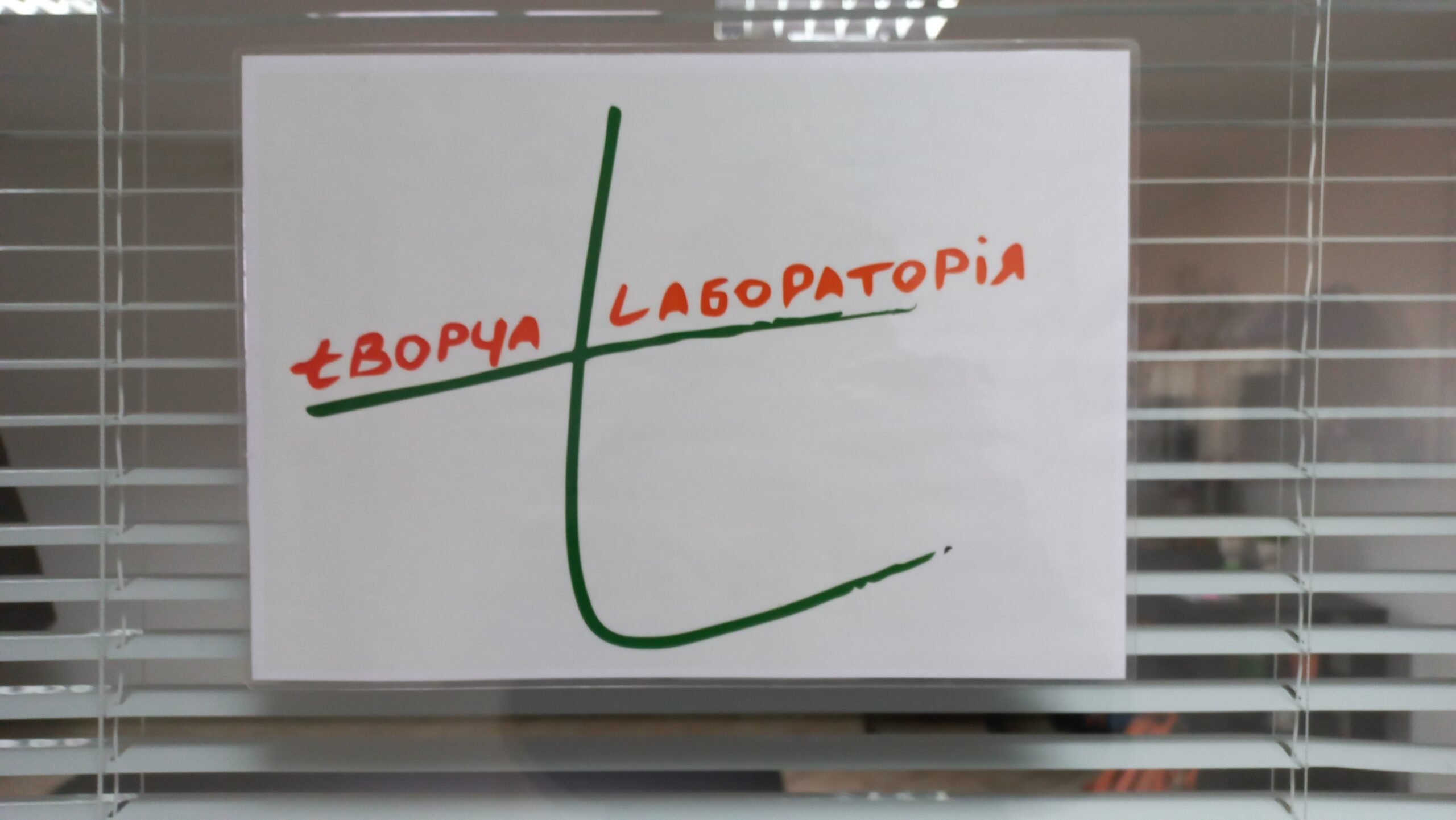
A group class at the "Creative Laboratory" costs ₴60, and an individual class — ₴150. The class lasts one and a half hours, but for younger children — an hour. At first, Olha offered subscriptions for classes three times a week, worth ₴600/month. However, this payment format "didn't work," so Olha left only one-time payments, although this does not help to have a stable picture.
After some time, Olha realized that in the fall, it would be difficult to adapt to the co-tenants schedule, and difficulties would arise. Then the woman started looking for a separate space. After a long search, Olha could rent a place in the village center, agreeing with the owner to rent it for ₴1,200/month.
"The owner made concessions to me because she understood that the heating fee would also increase with the arrival of cold weather. This is where communication, the ability to negotiate, is important. It is important to show that you want to bring something good into the world," Olha explains.
To furnish the room, the woman bought a table, a chair, a speaker, cups, tennis balls for training, a puzzle carpet for the floor, and ottomans. She managed to buy the latter from the locals for 300 hryvnias, even though they cost about a thousand on the Internet. Olha invested the salary she was paid after the full-scale invasion and her IDP social benefits. A total of ₴12 thousand were spent.
"We have been working for many years, so nothing really just fell from the sky. It is important to understand how you see your business. And then you find a hall, and the children come," Olha says. "I wanted to make my space stylish, minimalist, and at the same time comfortable and understandable. However, the most important thing is knowledge. It can be scaled as you like."
Does it really work?
"Creative Laboratory" paid off in the summer. Now Olha is thinking about staging a big play, "Mary Poppins," which will surpass "Wings" and surprise Velykyi Bychkiv. Olha has already come up with the scenery and is working on the story itself, which would show the peculiarity of the children's inner world. There are also plans to go with theater master classes for children in the surrounding villages and create a separate group for classes with adults.
Tetyana's Rakhiv "Ta-ra-ram" has also already paid off, and the branch in Velykyi Bychkiv should turn a profit in the spring. Now she is thinking about designing the curriculum and further selling it. Tetyana is also looking for vacant premises — she plans to open a third kindergarten because she sees a significant demand for child development classes. Tetyana is happy that she has formed a whole network here.
Newsletter
Digest of the most interesting news: just about the main thing





